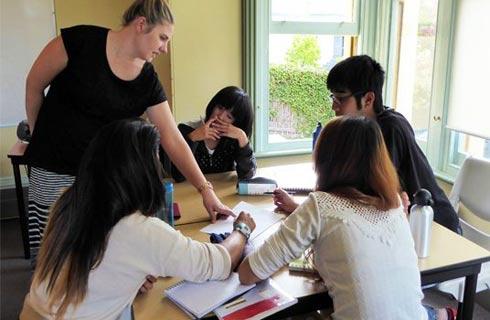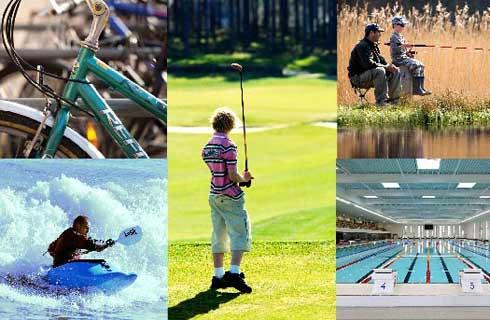BSc (Hons) Ecology and Conservation Biology


学历文凭
Bachelor Degree with Honours

专业院系
Department of Animal and Plant Sciences

开学时间

课程时长

课程学费

国际学生入学条件
AAB
including Biology and a second science
A Levels (Plus) additional qualifications ABB, including Biology and a second science (Plus) B in the EPQ, ABB, including Biology and a second science (Plus) B in Core Maths
International Baccalaureate 34, with 6, 5 in Higher Level Biology and a second science
BTEC Extended Diploma RQF: DDD in Applied Science or Forensic Science with Distinctions in all Biology Units
Scottish Highers (Plus) 1 Advanced Higher AAABB including a science subject (Plus) B in Biology
Welsh Baccalaureate (Plus) 2 A Levels B (Plus) AA in Biology and a second science
Access to HE Diploma 60 credits overall in science, with 45 credits at Level 3, including 36 credits at Distinction (to include Biology and a second science) and 9 credits at Merit. Applicants are considered individually
Routes for mature students
Other requirements
Human Biology is acceptable instead of Biology. Second science from Chemistry, Mathematics, Further Mathematics, Physics, Psychology, Environmental Science, or Geography
GCSE Maths grade 4/C
English language requirements
You must demonstrate that your English is good enough for you to successfully complete your course. For this course we require: GCSE English Language at grade 4/C, IELTS grade of 6.5 with a minimum of 6.0 in each component, or an alternative acceptable English language qualification
TOEFL iBT - Overall score of 88 with a minimum of 19 in Listening, 20 in Reading, 22 in Speaking and 19 in Writing
IDP—雅思考试联合主办方

雅思考试总分
6.5
- 雅思总分:6.5
- 托福网考总分:88
- 托福笔试总分:160
- 其他语言考试:Pearson Test of English Academic - Overall score of 61 with a minimum of 56 in each component
CRICOS代码: C180
申请截止日期: 请与IDP联系 以获取详细信息。
课程简介
相关申请
 预科
预科 奖学金
奖学金 实习机会
实习机会 在校学习
在校学习 跨境学习
跨境学习 校园授课-线上开始
校园授课-线上开始 在线/远程学习
在线/远程学习
开学时间&学费
学费信息仅供参考,请与IDP联系以获取详细信息
| 开学时间 | 时长 | 学费 | 地点 |
|---|
本校相关课程

International Foundation Year
学历文凭
Foundation for Undergraduate
开学日期
课程费用总额


International Foundation Year
学历文凭
Foundation for Undergraduate
开学日期
课程费用总额


International Foundation Year in Business, Social Sciences and Humanities
学历文凭
Foundation for Undergraduate
开学日期
课程费用总额


International Foundation Year in Business, Social Sciences and Humanities
学历文凭
Foundation for Undergraduate
开学日期
课程费用总额


International Foundation Year in Dentistry
学历文凭
Foundation for Undergraduate
开学日期
课程费用总额


International Foundation Year in Science and Engineering
学历文凭
Foundation for Undergraduate
开学日期
课程费用总额

其他相关课程

生物医学学士
 皇家墨尔本理工大学
皇家墨尔本理工大学学历文凭
Bachelor Degree
开学日期
课程费用总额


哲学硕士-生物医学和生物化学
 澳大利亚国立大学
澳大利亚国立大学学历文凭
Masters Degree (Research)
开学日期
课程费用总额


生物医学学士
 詹姆斯·库克大学
詹姆斯·库克大学泰晤士高等教育世界大学排名:361
学历文凭
Bachelor Degree
开学日期
课程费用总额


理学学士(海洋生物学)
 弗林德斯大学
弗林德斯大学泰晤士高等教育世界大学排名:307
学历文凭
Bachelor Degree
开学日期
课程费用总额


理学学士-海洋生物学(荣誉学位)
 弗林德斯大学
弗林德斯大学泰晤士高等教育世界大学排名:307
学历文凭
Bachelor Degree with Honours
开学日期
课程费用总额


城市与环境规划学士/海洋生物学理学学士
 格里菲斯大学
格里菲斯大学泰晤士高等教育世界大学排名:258
学历文凭
Dual Degree
开学日期
02 March 2026
课程费用总额
AUD 167,500










